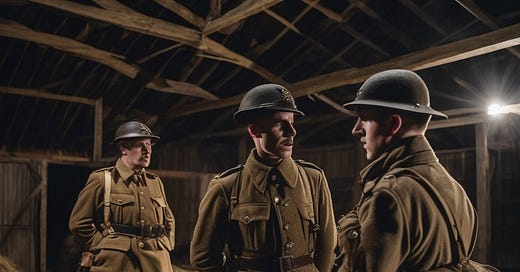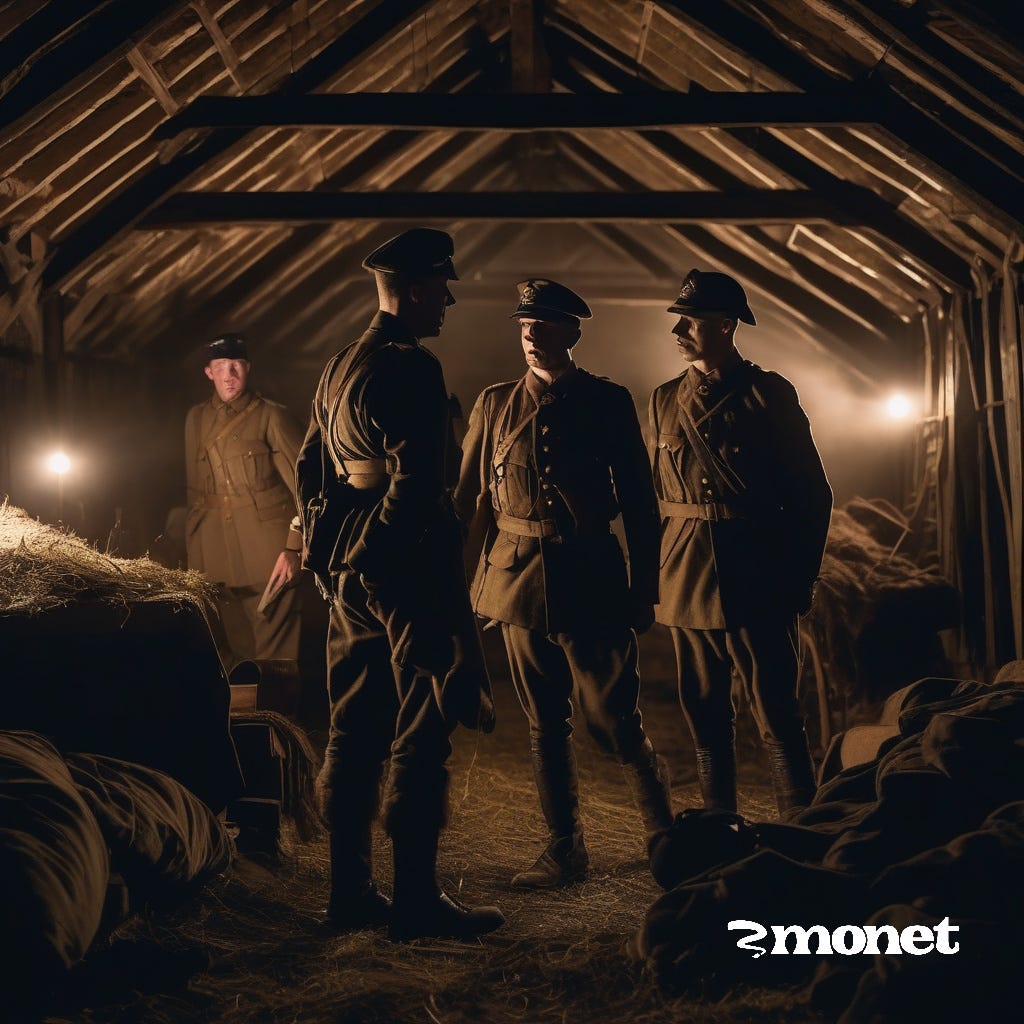A spectral interlude in Mr. Standfast (1919) by John Buchan
“There’s a lot of ghosts in this darned country”
Readers unfamiliar with Mr. Standfast may prefer to read these notes only after reading the novel.
"Men who live in the wilds know they are in the hands of God." Chapter XV
Mr. Standfast is a Great Game novel about counterespionage during World War One.
Like earlier Richard Hannay novels, there is a shocking amount of unprepared coincidence. This tendency is hardest to swallow in Chapter 13. The setting has shifted from rural England and Scotland in summer to the Western Front in winter. Hannay has rejoined his division in the trenches after being double-bluffed and thwarted by his nemesis, Mr. Ivery.
Hannay has heard a rumor that one of Ivery's lieutenants has been sighted in France, loitering at the hamlet of Eaucourt Sainte-Anne.
On 23rd October I had the bad luck, during a tour of my first-line trenches, to stop a small shell-fragment with my head. It was a close, misty day and I had taken off my tin hat to wipe my brow when the thing happened. I got a long, shallow scalp wound which meant nothing but bled a lot, and, as we were not in for any big move, the M.O. sent me back to a clearing station to have it seen to. I was three days in the place and, being perfectly well, had leisure to look about me and reflect, so that I recall that time as a queer, restful interlude in the infernal racket of war. I remember yet how on my last night there a gale made the lamps swing and flicker, and turned the grey-green canvas walls into a mass of mottled shadows. The floor canvas was muddy from the tramping of many feet bringing in the constant dribble of casualties from the line. In my tent there was no one very bad at the time, except a boy with his shoulder half-blown off by a whizz-bang, who lay in a drugged sleep at the far end. The majority were influenza, bronchitis, and trench-fever—waiting to be moved to the base, or convalescent and about to return to their units.
A small group of us dined off tinned chicken, stewed fruit, and ration cheese round the smoky stove, where two screens manufactured from parking cases gave some protection against the draughts which swept like young tornadoes down the tent. One man had been reading a book called the Ghost Stories of an Antiquary, and the talk turned on the unexplainable things that happen to everybody once or twice in a lifetime. I contributed a yarn about the men who went to look for Kruger’s treasure in the bushveld and got scared by a green wildebeeste. It is a good yarn and I’ll write it down some day. A tall Highlander, who kept his slippered feet on the top of the stove, and whose costume consisted of a kilt, a British warm, a grey hospital dressing-gown, and four pairs of socks, told the story of the Camerons at First Ypres, and of the Lowland subaltern who knew no Gaelic and suddenly found himself encouraging his men with some ancient Highland rigmarole. The poor chap had a racking bronchial cough, which suggested that his country might well use him on some warmer battle-ground than Flanders. He seemed a bit of a scholar and explained the Cameron business in a lot of long words.
Keep reading with a 7-day free trial
Subscribe to Reading After Dusk to keep reading this post and get 7 days of free access to the full post archives.




